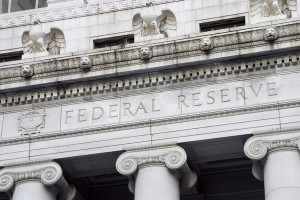The election of Donald Trump as the next U.S. president could signal a period of heightened pressure on the Federal Reserve to change its accommodative stance, Barclays (BARC.L) Chief Executive Jes Staley told a banking conference on Wednesday.
“You’ll see political pressure on the Fed to be much less accommodative … influence on the Fed is going to be a significant consequence of the election,” Staley said at the FT Banking Summit.
Staley also said that John Taylor, the influential Stanford University economics professor whose ‘Taylor rule’ describes how banks should raise interest rates in response to inflation, could become the next chairman of the Federal Reserve.
“There’s a very tight group within the Republican Party that believes quantitative easing has run its course,” Staley said.
Staley said he did not foresee big rollbacks on banking regulation, following speculation that President-elect Trump could reverse parts of the Dodd-Frank legislation governing the split of banks’ commercial and investment banking activities.
Staley said that Britain’s vote to leave the European Union would be less impactful than the election of Trump on the global economy and markets, and would take longer to execute than had been initially thought.
“I don’t think anyone believes we will be able to have clarity in the time frame of establishing article 50,” Staley said, referring to the legal notification that would trigger Britain’s exit, due by the end of March.
via Reuters
